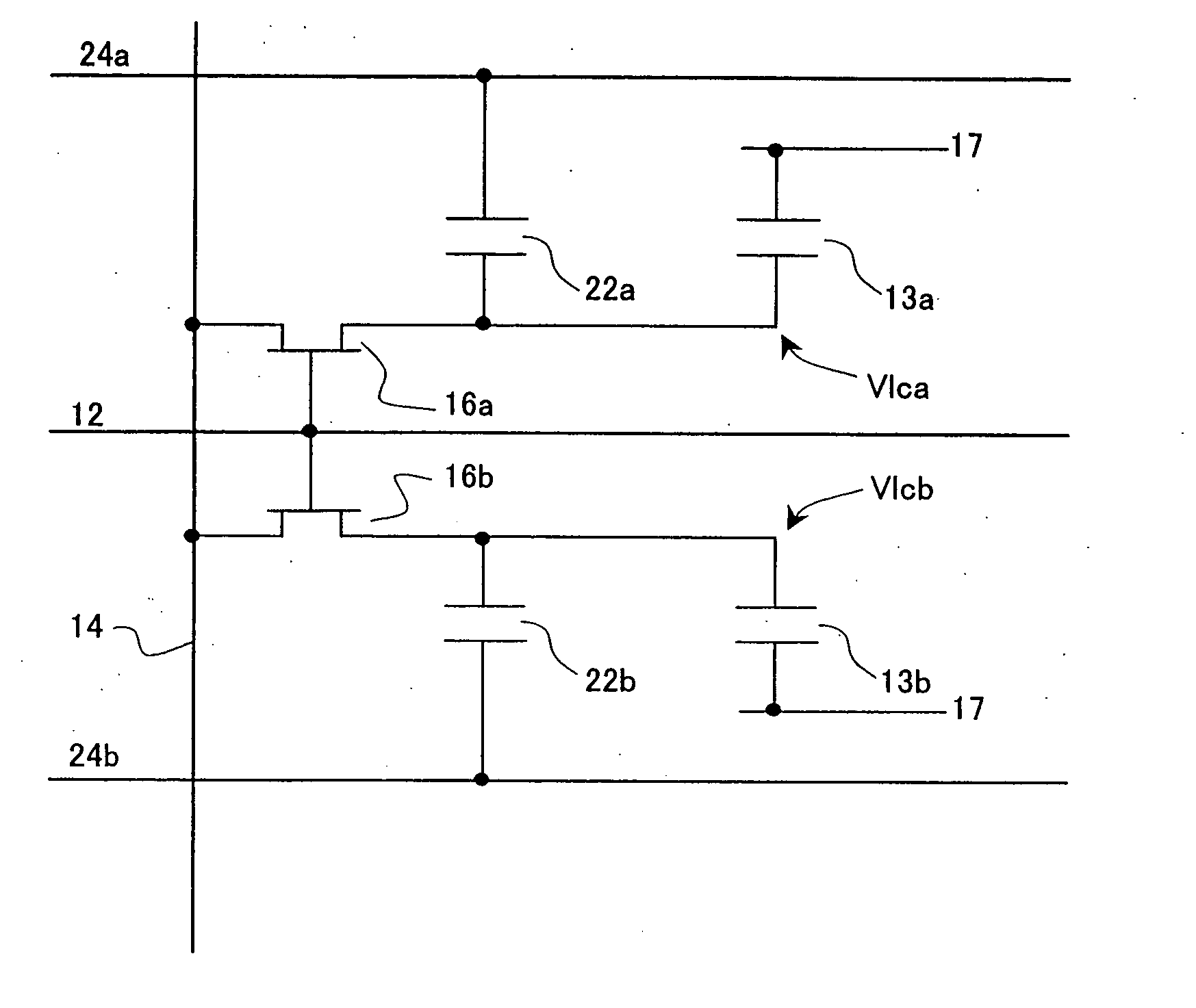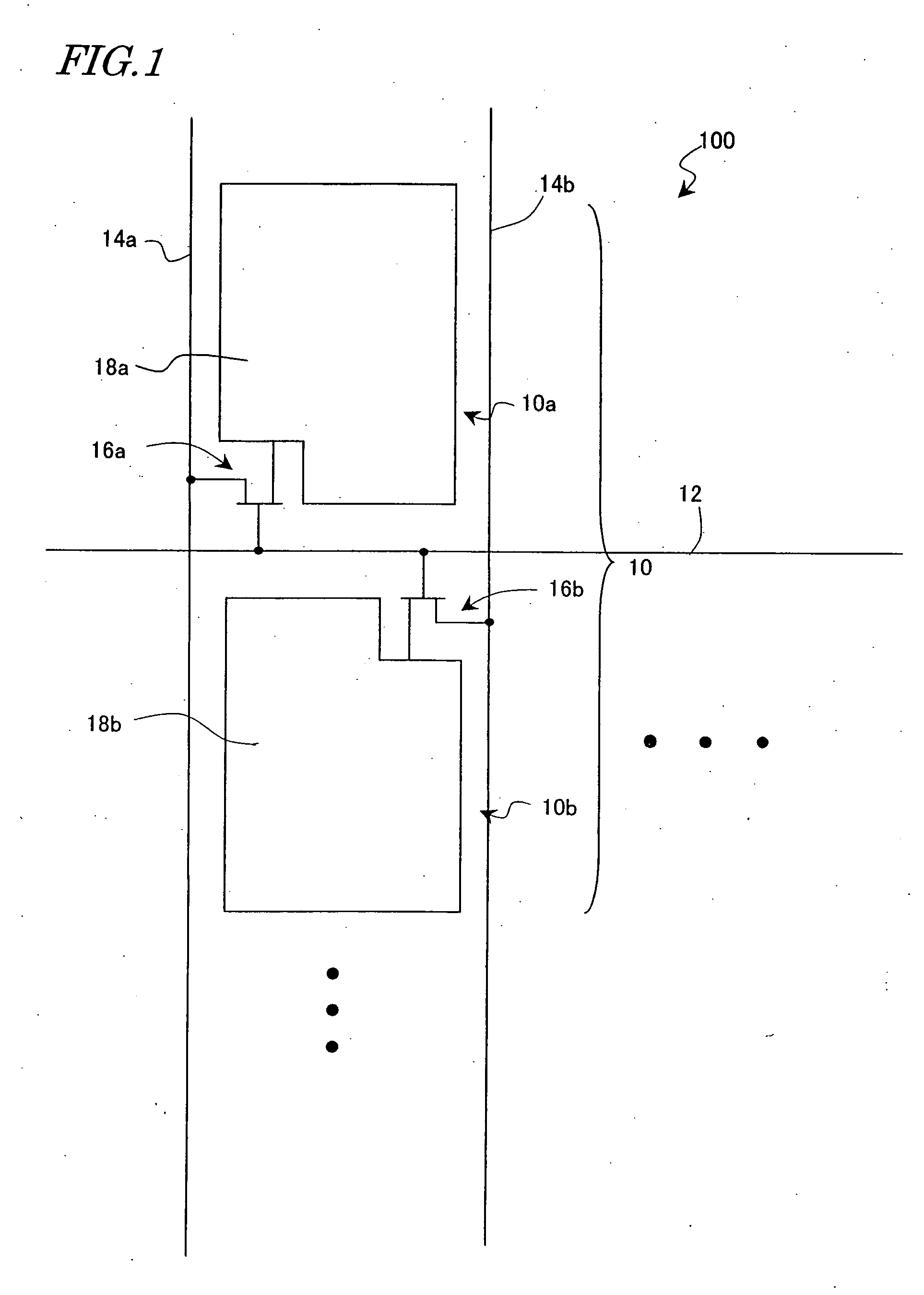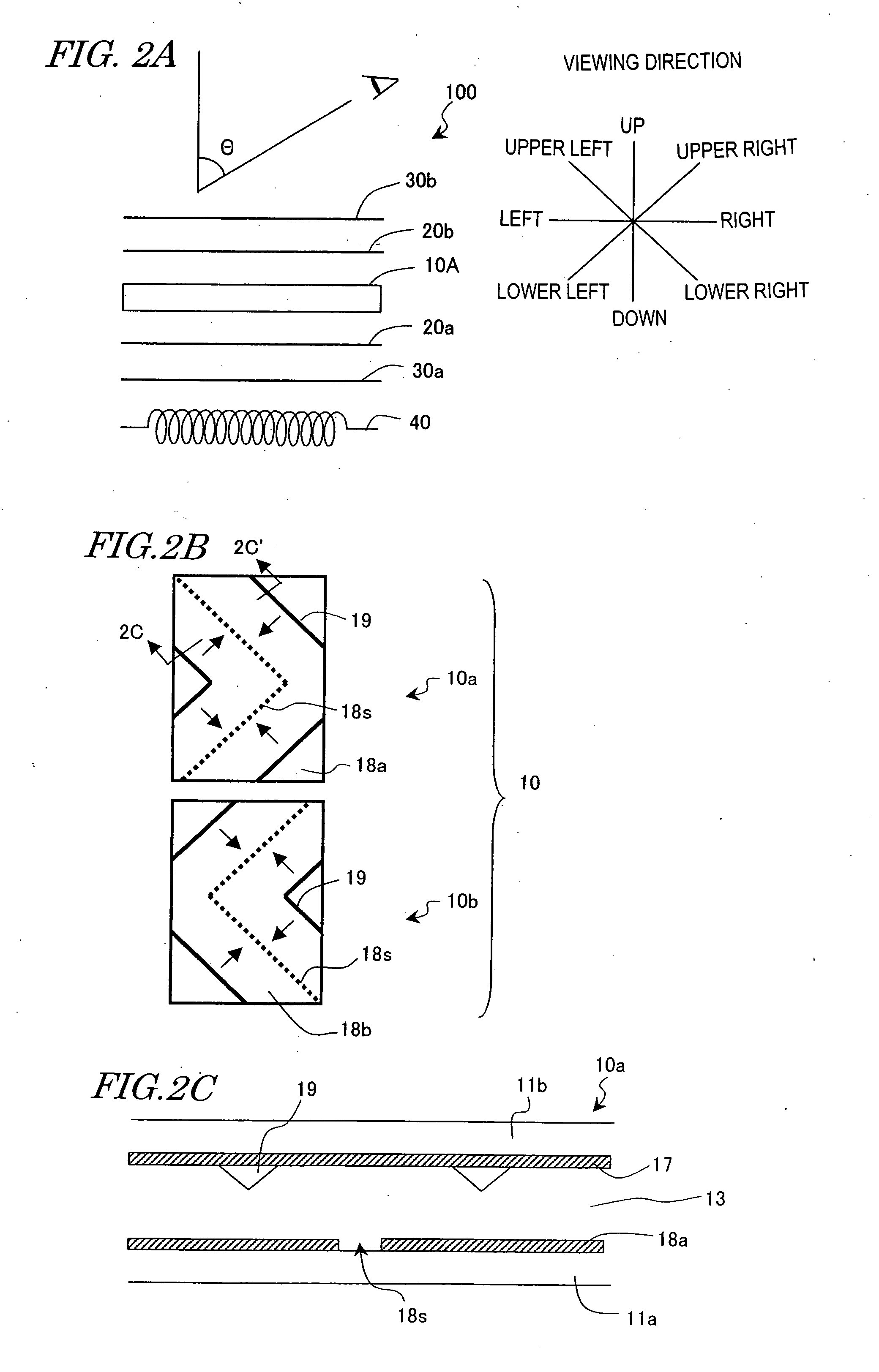Liquid crystal display
a liquid crystal display and display technology, applied in the field of liquid crystal display, can solve the problems of display performance, front appears brighter, and the brightness difference between grayscales is very unclear, so as to improve the characteristics of liquid crystal displays, reduce the viewing angle dependence of characteristics, and display high quality
- Summary
- Abstract
- Description
- Claims
- Application Information
AI Technical Summary
Benefits of technology
Problems solved by technology
Method used
Image
Examples
Embodiment Construction
[0158] Configuration and operation of liquid crystal displays according to embodiments in a first aspect of the present invention will be described below with reference to drawings.
[0159] First, refer to FIGS. 1, 2A, 2B, and 2C. FIG. 1 is a diagram schematically showing an electrode arrangement in a pixel of a liquid crystal display 100 according to an embodiment of the present invention. FIG. 2A is a diagram schematically showing an overall configuration of the liquid crystal display 100, FIG. 2B is a diagram schematically showing an electrode structure in a pixel, FIG. 2C is a sectional view taken along a line 2C-2C′ in FIG. 2B. For the purpose of reference, an electrode arrangement in a pixel of a conventional liquid crystal display 100′, its electrode structure, and a sectional view taken along a line 3C-3C′ are shown schematically in FIGS. 3A, 3B, and 3C, respectively.
[0160] The liquid crystal display 100 according to this embodiment operates in normally black mode and compri...
PUM
| Property | Measurement | Unit |
|---|---|---|
| transmittance | aaaaa | aaaaa |
| angle | aaaaa | aaaaa |
| threshold voltage | aaaaa | aaaaa |
Abstract
Description
Claims
Application Information
 Login to View More
Login to View More - R&D
- Intellectual Property
- Life Sciences
- Materials
- Tech Scout
- Unparalleled Data Quality
- Higher Quality Content
- 60% Fewer Hallucinations
Browse by: Latest US Patents, China's latest patents, Technical Efficacy Thesaurus, Application Domain, Technology Topic, Popular Technical Reports.
© 2025 PatSnap. All rights reserved.Legal|Privacy policy|Modern Slavery Act Transparency Statement|Sitemap|About US| Contact US: help@patsnap.com



